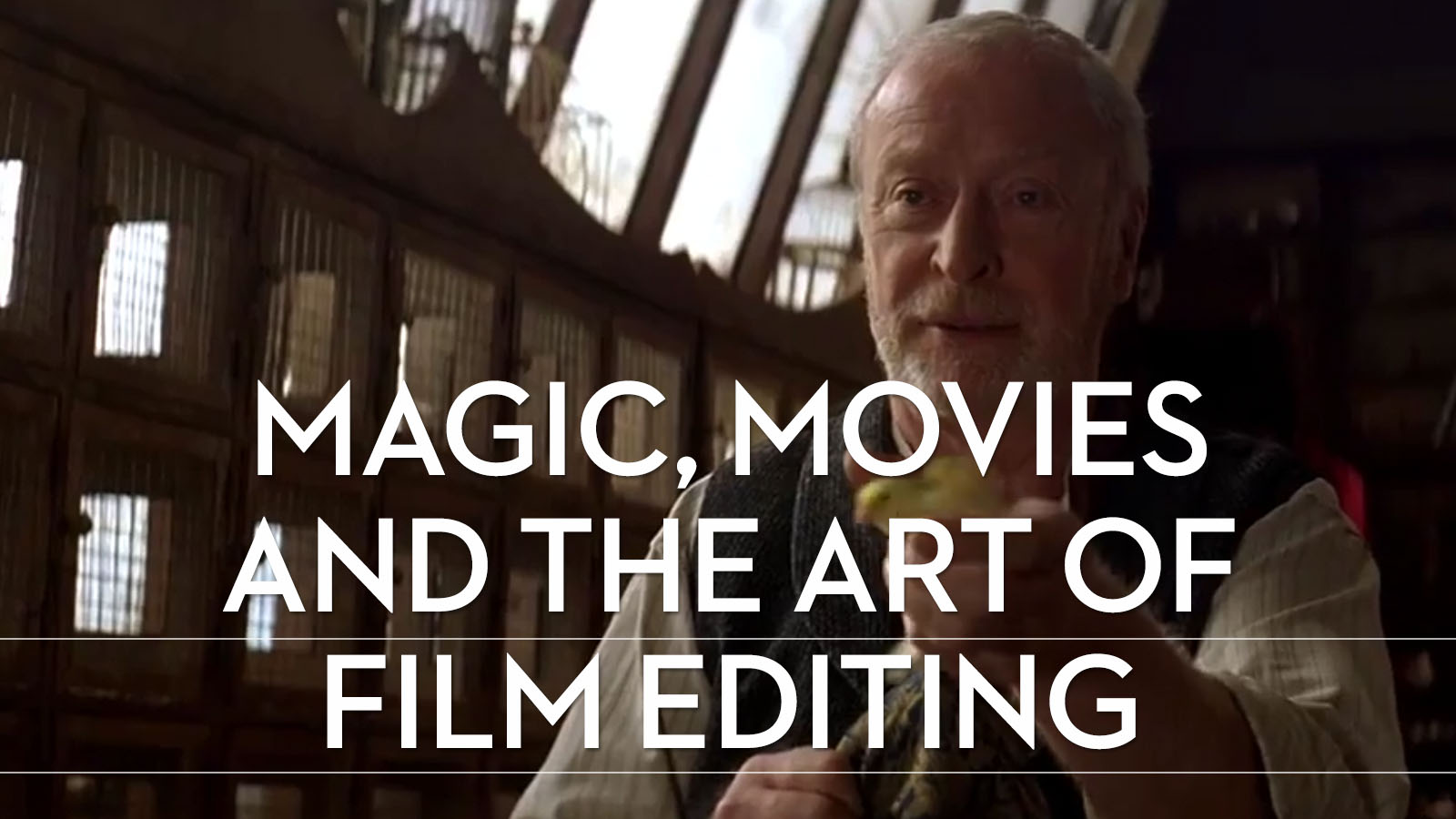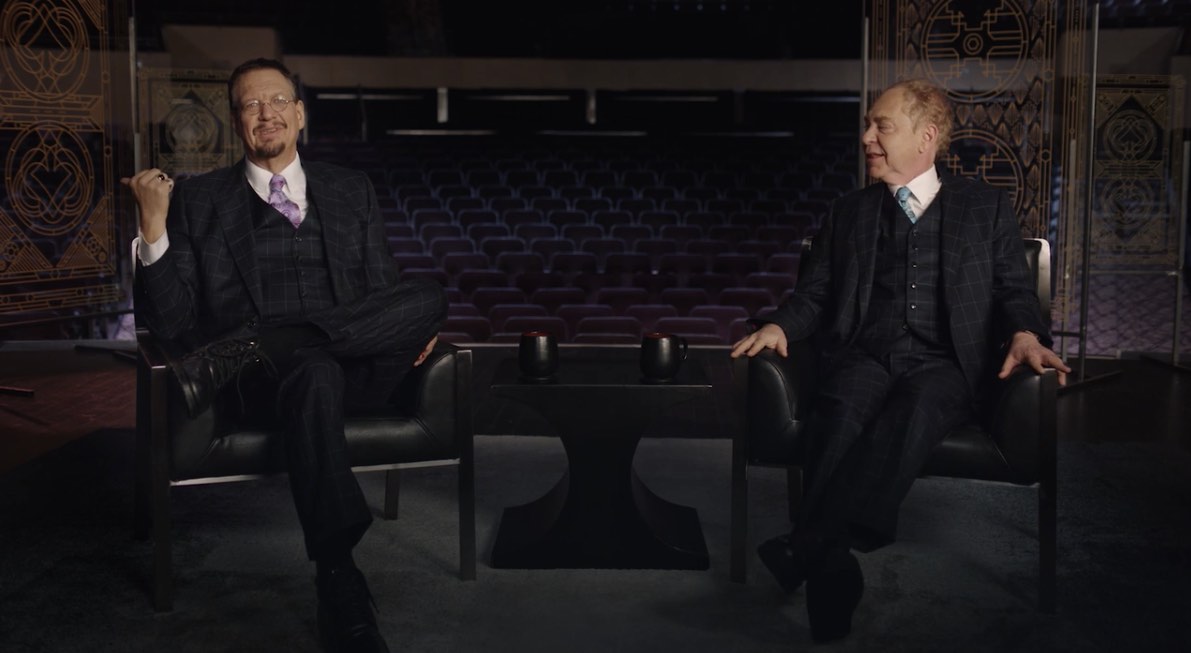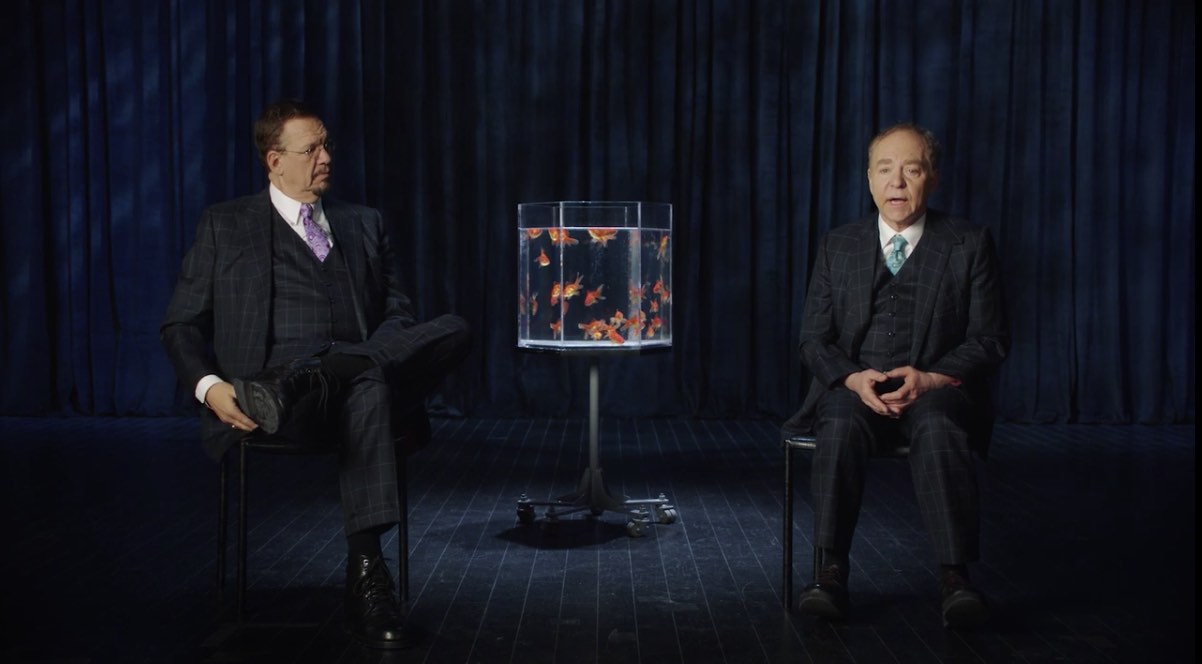Magic, Movies and the Art of Film Editing

This post is about magic, movies and the art of film editing, and how all those things can come together to deliver a little child-like wonder.
To me, the feeling you get from good film editing is the same feeling a child gets when you pull a coin from behind their ear, or make something disappear before their very eyes. You feel the wonder first and then you question: how was it done? And then, if you’re really curious, you go about deconstructing it.
In magic, as all the video essays on The Prestige (below) will tell us, a trick, like a story, has three parts; the pledge (Act 1), the turn (Act 2) and the prestige (Act 3). Learning the structure of a trick and the storytelling principles it requires are useful ways of thinking about how storytelling works within film editing.
Principally these techniques require manipulation, deception and empathetic engagement with the audience. Without all of these things it will be difficult for the audience to be drawn in and willingly deceived, albeit momentarily. And in breaking apart the moving parts behind a magic trick, or an edit, or a film’s overall narrative structure, we can learn more about the process of successful film editing.
Magic, much like film editing, requires the audience to trust you even though, as in a magic trick, the magician/filmmaker is often an ‘unreliable narrator’ – telling us things are true and reliable when they are anything but. Much like Verbal Kint in The Usual Suspects who tells us that “The greatest trick the Devil ever pulled was convincing the world he didn’t exist.“
And as Penn and Teller say in their Masterclass on performing magic “the best lie is the one the audience tell themselves.“
To me the same principles that are required for a magic trick, those of deception, manipulation and empathetic engagement with the audience are essential components of what is required of an editor. Crafting elements to be seen a certain way, to convey a certain understanding and then to deliver a moment of wonder – in another person – even if all you’ve got is a rabbit and a hat.
I think this introductory video from Inside The Edit, encapsulates that process well, and helps to unpack some of the core elements of our craft.
In magic, it is more interactive than most other forms. It’s very hard to do magic for yourself, very hard to do that. So you need feedback.
And the one thing you learn in magic, although the props change and although the methods change you start to develop an intuition for what the audience will be thinking, what they will be paying attention to.
But no matter how good your intuition gets, having other people give you feedback is really good.
In this post I’m going to explore some of these themes through a few things I love. Storytelling and film editing, Masterclass.com and the films of Christopher Nolan.
But to get us started a few fun videos first.
This Vanity Fair video brings most of these elements together in one, with Penn Jillette discussing various scenes of magic from numerous film and TV shows including Now You See Me, The Prestige, Arrested Development and a few more.
The video above reminded me of this excellent video from the always superb, Every Frame a Painting, on the art of the gag, with Buster Keaton. But, as Tony Zhou narrates, these visual jokes work almost like magic tricks with the whole ‘gag’ in one shot.
Penn and Teller Masterclass Review

Penn and Teller Teach Magic on Masterclass.com is a delight from start to finish.
But a word of warning for anyone who is already seriously and deeply engaged* in the ‘world of magic’. You might not learn anything you didn’t already know. They don’t reveal any of their best secrets to their world-class magic tricks, but they are open, honest, intellectual and entirely engrossing in everything they share.
*Personally, I’m not that’s not me. I’ve always loved magic and learned a few tricks as a kid, so I think I had just the right engagement level to really enjoy this class. If my time spent with Penn and Teller results in nothing more than being able to surprise my daughter by pulling a coin out of her ear, I will have achieved victory.
But that’s not exactly why I decided to take the class in the first place.
“Misdirection is the story that you get the audience to tell itself, and what I like about is that it incorporates the idea that the audience is an active participant in their own deception.
Which is fine, that’s what they came there for, the delight of being deceived.” – Teller
Magic is a storytelling art form and I believe film editors can learn a huge amount from all the other storytellers out there. Be they comedians, screenwriters, authors, composers or journalists, I can learn from them. And it’s the ability to learn new things about telling successful stories that will help me progress as an editor.
Yes, you can spend your time learning different editing software and technical know-how, but, after all that, if the story isn’t working, it doesn’t really matter. People won’t really hire you for your capabilities with the software, they’ll hire you for the way they feel after they watch what you’ve cut.
So my point is, invest in your wetware – in improving your skills as a storyteller any way you can.
As I mentioned at the start of this post there is a real synergy to film editing and performing magic.
As an editor you’re also using manipulation of perceived time and space, misdirection through constraining the audience’s attention and empathetic engagement with what the audience is thinking and feeling to draw them in to the story and on towards the narrative’s climactic moments.
On all these topics, Penn and Teller have a huge amount to offer.
There are 17 lessons in the Penn and Teller Teach Magic Masterclass which walk you through several simple – but wonderful – tricks involving coins, ropes, cards and more. They also showcase several tricks from their Las Vegas live show including the beautiful ‘silverfish’ trick.
A core strand of the masterclass is Penn and Teller’s discussion of several key themes and topics performing magic brings up, such as lying, deception and ethical considerations when interacting with an audience What struck my about everything they had to say was that they came from a very grounded perspective but also one that was carefully thought through and strove for an integrity that you seems to have steered them well after decades of working in the business.
To illustrate the kinds of things you’ll learn some of my favourite lessons include:
- Sleight of Hand: The French Drop
- Misdirection
- Coin Magic
- Exploiting the Best of the Human Brain
- Cause and Effect
- The Joy of Magic
“What a trick demonstrates to you is that you were just perceiving your world, and it was going the way it’s always gone before, all throughout your life and all of a sudden there’s a different outcome, that’s a beautiful feeling.” Penn
The video essays in the next section will get into this kind of connection – between perceived expectations and the disbelief of the real narrative in much more detail, but the backbone of a magic trick is the audience telling themselves a story, based on the inputs you are giving them, and making it make sense in their heads. That’s what’s so good about the twists and turns in The Prestige, or any well conceived thriller, the filmmakers led us to believe something that wasn’t true.
At the time, in the moment, the pieces of the puzzle seemed to make sense when combined with what you already know about the world, or at least they coherently allude to a mystery you haven’t yet fathomed but are engaged in figuring out, but in the end the final reveal demonstrates that you had been tricked all along. Obvious examples include The Sixth Sense, The Usual Suspects but also films like The Constant Gardner, Inception and Arrival.
But this kind of meticulous and controlled storytelling requires a deep understanding of how best to pace out the information, controlling how it’s delivered and digested by the audience. It’s telling that many of Christopher Nolan’s films have a very simple story, when told chronologically, but a vastly complex narrative arc when told in his time-twisting style. That’s what makes them so ‘re-watchable’.
However the challenge for the editor is to ensure that the audience doesn’t get lost along the way. They need just enough to hold on to to keep them engaged but never enough so they hold all the cards and don’t need to see what happens next. Being predictable is boring, but so is being confused.

One of my favourite tricks in the whole Masterclass is the Silverfish trick, which involves turning coins into fish and back again. It’s a (seemingly) simple trick in it’s execution, but the silent storytelling from Teller is captivating.
In their dissection of what makes the trick so compelling, Teller talks about the poetic elevation of simple cause and effect, turning water into coins, or coins into fish.
“There’s a real poetic connection (between the objects) and that’s when the causality isn’t primitive and cliched but beautiful and poetic.” – Teller
I think this is an important concept for editors to strive for. To add a little poetry in their motion.
We have the opportunity to build connections across edits, to join two disparate ideas and make them fuse together in the mind of the audience. Whether that’s in connecting two unexpected images in a single cut, or building emotionally resonant moments through matching music with motion, and emotion within the frame.
If there is the opportunity to be a little bit poetic, a little bit ‘artistic’ – take it. And, as a side note, if you can, “always keep in the funny.”

Overall I really enjoyed both the theory and the practice of Penn and Teller’s Masterclass as they were both highly engaging instructors, and for a novice, had enjoyable tricks to teach.
As always with Masterclass.com the camera work, editing and production design of the class was impeccable and really served to help you both enjoy the lesson and understand precisely how to perform each trick yourself.
The ‘bonus’ content of Penn and Teller coaching other magicians was entertaining and edifying, but still might not be advanced enough to satisfy those who might already consider themselves magicians. But if you already hold an all-access pass there’s really no reason not to take the class!
Enjoy a little wonder for yourself with Penn and Teller, over on Masterclass.com
Why you should seriously consider a subscription to Masterclass.com
I’ve written about Masterclass.com many times on this site. I absolutely love it and I hope you will too.
The All-Access Pass isn’t exactly cheap, but it is amazing value considering who you get to learn from, and they are constantly adding new instructors.
I recently wrote this (long) post on all the things I’ve learned about film editing specifically from taking Masterclasses from the likes of David Mamet, Jodie Foster, Spike Lee, Ken Burns and Werner Herzog.
For some further reading, here are some quick links to my previous in-depth reviews:
- Aaron Sorkin Teaches Screenwriting
- Hans Zimmer Teaches Film Scoring
- Ron Howard Teaches Film Directing
- Martin Scorsese Teaches Filmmaking
- Commander Chris Hadfield Teaches Space Exploration
- Malcolm Gladwell Teaches Writing
- Bob Woodward Teaches Investigative Journalism
- Samuel L. Jackson Teaches Acting
The Prestige and the Magic of Film Editing
Watching these video essays will give you a much better understanding of the many connections and similarities between magic and film editing.
In this opening essay from Nerdwriter, he considers Nolan’s approach to filmmaking in which the director crafts films that are at once totally immersive and also ‘metacinematic’. He goes on to explore the idea that Nolan, as a director, is often hiding in plain sight. Just like a magic trick.
It’s a really insightful essay on all the themes that we’ve looked at in this post; how magic delivers a sense of wonder through carefully crafted misdirection and the power of editing to ‘traverse time and space’ in a single cut as well as through the complex yet seamless narrative structure of a film like The Prestige.
“All films even, as tightly wound as this, invite a probing eye… We’re accustomed to taking most editing for granted but.. studying film doesn’t kill it’s magic, it feeds that magic back into the real world.” – Nerdwriter
These ideas ”By the magic of movies I mean what makes cinema unique. Editing, post-production and re-watchability.” are further analysed in this essay from Jacks’s Movie Reviews.
He further explores the filmmaker’s manipulation of us the audience through using the traditional rules of cinema (reality) against us. It’s well worth a watch for a great dissection of the similarities between filmmaking, magic and being successful in both arenas in the eyes of the audience.
“It also tells us that today, some of the best magicians working are today’s best filmmakers. They are the ones who can do real magic. They can create stories out of thin air and transport us into a brand new world.” – JMR
In this hour long deep dive into The Prestige, Rant and Bollox delivers a fascinating breakdown of the making of and the effect of the films narrative structure. If you have the time, it’s a hugely enjoyable watch!




